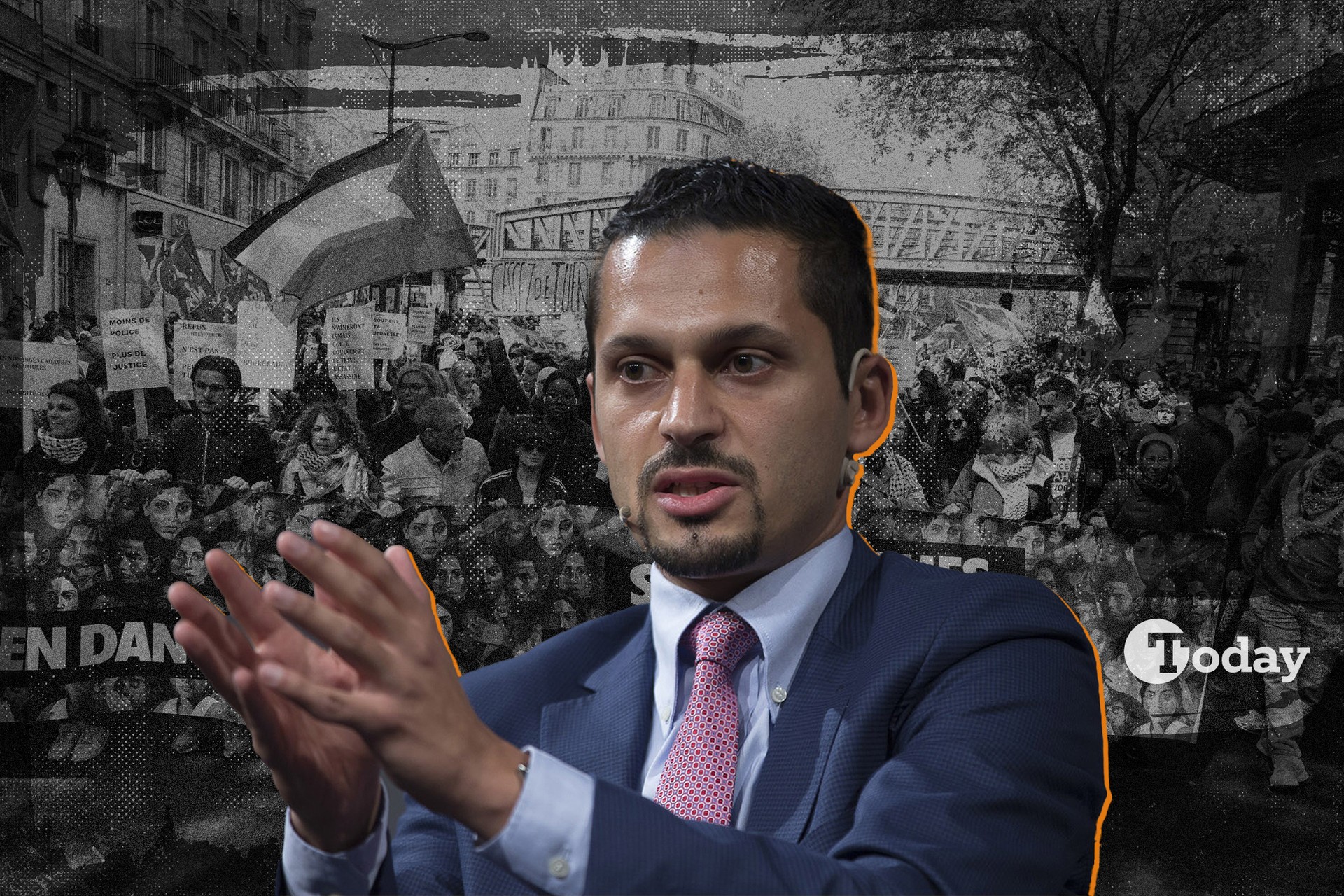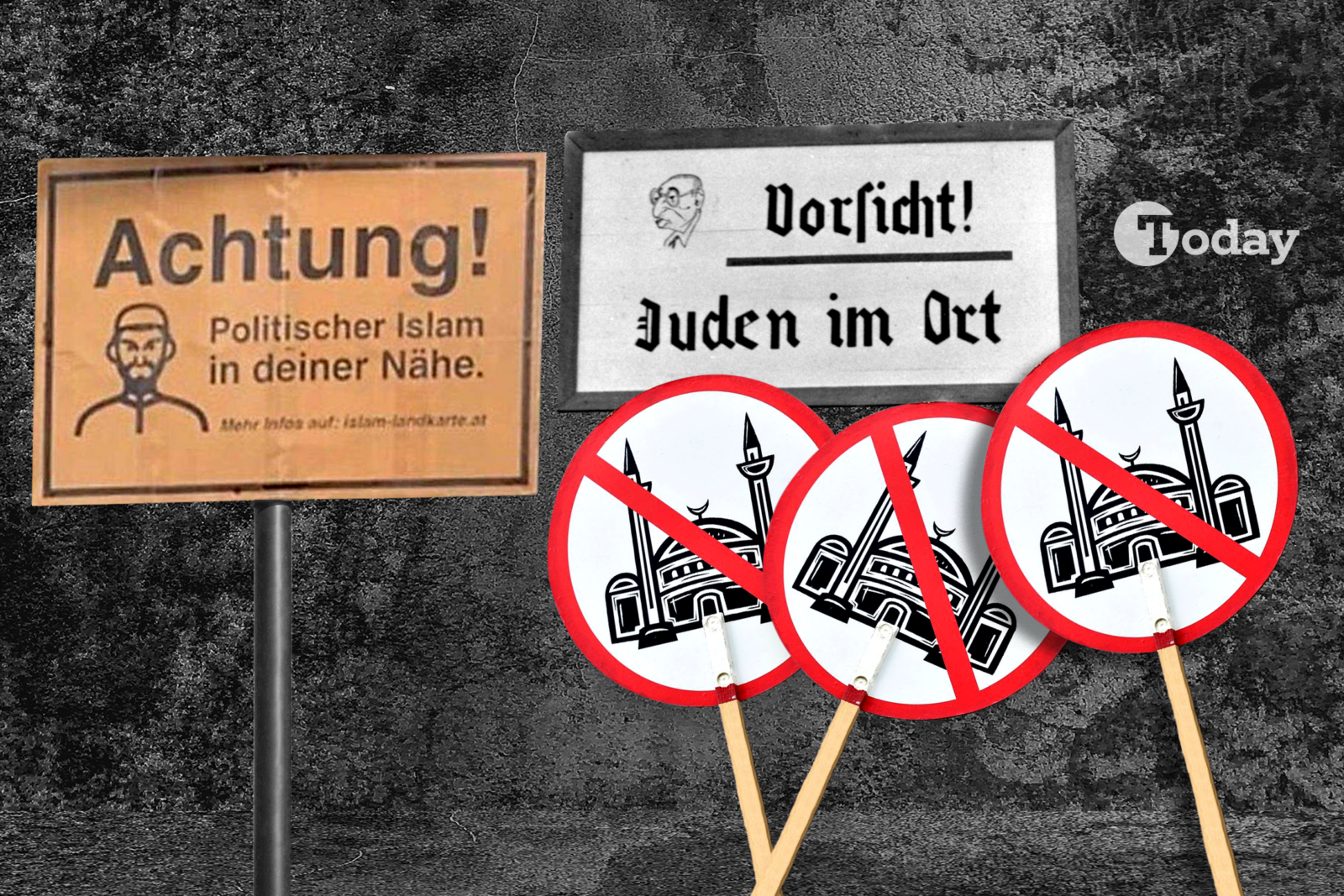
The attacks in Magdeburg and New Orleans brought forth numerous discussion points. In an interview with Türkiye Today, scholar Farid Hafez challenges dominant narratives about terrorism, racism, and power structures.
While terrorism is often framed as a technical term, Hafez argues it functions as a political tool to maintain power and marginalize groups. His analysis raises pressing questions about how violence is defined, frame and weaponized.
Some refer to the recent incident that happened in Magdeburg as anti-Muslim terrorism. Farid Hafez challenges the term "terrorism" itself on a conceptual level, describing it as a highly racialized label used to delegitimize any form of violence stemming from opposition to dominant powers, particularly those from the Global South.
"I refrain from using the notion of terrorism itself because it often serves as a discursive tool of propaganda," Hafez said. Instead, he emphasized that anti-Muslim violence should be labeled as acts of violence rather than terrorism to avoid reinforcing discriminatory narratives.
Hafez argued that the label often reflects power dynamics rather than objective assessments of violence. "When a white perpetrator commits violence, it is rarely classified as terrorism," he noted, contrasting this with the quick racialization of violence committed by non-white individuals.
Hafez emphasized that Islamophobia and racism function as tools to protect existing power structures, often through state policies. "It is about defending power," he said, highlighting how authoritarian regimes use Islamophobia to suppress opposition by framing religious groups as extremists in certain parts of the world.
He pointed to examples in both Western and Muslim-majority countries, including Tunisia and Türkiye, where governments regulate religiosity to marginalize Muslim identities. "For some regimes, controlling Islam is part of defending authoritarian structures," Hafez explained.
A senior researcher at Georgetown University’s The Bridge Initiative, Hafez posited "Islamophobia is always about the imagined Muslim—not the real one." Countries with small Muslim populations, such as Hungary and Slovakia, often exhibit high levels of Islamophobia driven by far-right propaganda in comparison to other countries.
Referring to a recent attack, Hafez asked about the perpetrator’s connections to anti-Muslim and far-right networks. "It was clear he was linked to prominent figures in the Islamophobia industry," he said, citing ties to political parties like the Alternative for Germany and U.S.-based networks.
Hafez explained that attackers often perceive themselves as defending the European identity against an alleged Islamic threat. "They see it as a defense of Christian or secular Europe against an Islamic conspiracy," he said.
Europe is not the only place in the world where those incidents can be exemplified. A member of the Global South, Argentina, now has a leader who was once condemned by the Organization of Islamic Cooperation (OIC) because he employed Islamophobic rhetoric. Despite having minimal Muslim migration and multiple times more Russian, Muslims are often on the board of targets, especially on social media by the supporters of the current president. "Islamophobia operates everywhere," Hafez said. "It doesn’t require the presence of real Muslims but thrives on the imagined threat."
He pointed out that countries with larger Muslim populations tend to expose less hostility due to familiarity, while those with fewer Muslims are more susceptible to fear-based propaganda.

Published in the last week of the year, “The European Islamophobia Report” examined anti-Muslim sentiment across 28 European countries, revealing that the war on the besieged Palestinian enclave has served as a “geopolitical trigger” for a surge in anti-Muslim racism in Europe as well. Hafez was co-editor of the report.
He explored the connections between Islamophobia and Israel’s geopolitical interests, particularly in suppressing Muslim political activism. "For Israel, the assumption is that any kind of Muslim political activism will at the end be pro-Palestinian," he said. This fear, he argued, drives support for extremist networks to prevent challenges to Israel’s policies.
He added that the framing of conflicts involving Muslims often emphasizes religious divisions rather than territorial and political issues. "This discourse detracts from the real political and economic issues and paints them in a religious way," Hafez explained, referring to the portrayal of Palestinians as extremists rather than an ethnically and politically diverse population with legitimate political claims.
Hafez addressed the controversial role of anti-Islam groups in reinforcing Islamophobia. "Many of the anti-Muslim spokespersons are Muslim themselves," he observed, attributing this phenomenon to personal experiences of oppression or radicalization. He explained that these individuals often adopt anti-Muslim views as a form of emancipation but warned against their exploitation by far-right groups.
"They even join forces in clamping down on the vast majority of Muslims in the name of fighting for emancipation," Hafez said.
He argued that these networks risk legitimizing Islamophobic narratives and reinforcing stereotypes, particularly when used as tokens by racist forces.
Hafez compared the attack to similar incidents, such as the Christchurch shootings in New Zealand and the Breivik attack in Norway.
"It is following into the footsteps of those other more violent experiences of anti-Muslim activism that we have seen in a couple of places throughout the world," he remarked. He emphasized that such attacks often emerge from extremist ideologies that portray Muslims as existential threats to Western values.
He also drew connections between Islamophobic rhetoric and previous attacks in Türkiye, pointing out how, even in Muslim-majority nations, anti-religious sentiments can drive violence. "In Türkiye, despite its Muslim majority, there are many who despise religion and see Islam as a civilizational threat," Hafez explained.
When asked about the concerns that repeated violent attacks might open a new chapter of state violence in other parts of the world, noting the incoming Trump administration, Hafez argued that the war on terror remains deeply institutionalized, even if it is no longer openly declared.
"The war on terror is not over, even if some declared it has been over," he said, emphasizing that its legal and security frameworks are still in place and can be reactivated at any time.
"Any incident can be used to crack down on specific groups of people," Hafez warned, adding that such measures often disproportionately target Muslims and reinforce racialized hierarchies. Hafez’s insights have an emphasis on the need to critically assess dominant narratives and resist policies that marginalize Muslim identities.
"We have to be aware that this is an international phenomenon," Hafez concluded, calling for greater awareness and advocacy to challenge systemic Islamophobia and promote justice and equality.